Posts Tagged ‘Government of Myanmar’ (75 found)
Time for a Paris-Principles Compliant National Human Rights Commission in Myanmar
The Asian NGO Network on National Human Rights Institutions (ANNI), together with its member, Burma Partnership (BP) deplores recent actions taken by the Myanmar National Human Rights Commission (MNHRC) in urging the victims in a high-profile child torture case to pursue financial settlement instead of proper legal action. ANNI and BP also wish to reiterate the need to further strengthen the Commission in order to fully comply with the Paris Principles […]
• • •Unity Must Prevail
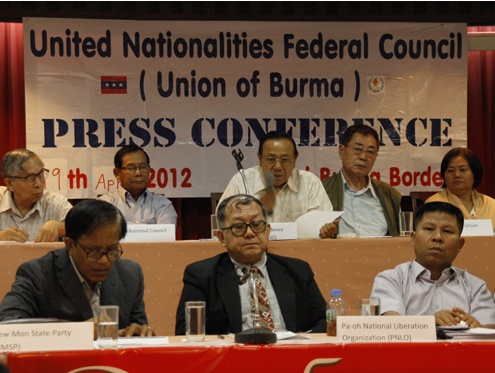 After its organizational conference held on a Thailand-Burma border area, disagreements between the United Nationalities Federal Council (UNFC) and the Karen National Union (KNU) has led to the KNU suspending its’ membership of the UNFC, a setback for the peace process. While this strikes a blow into the government engineered narrative that the peace process is making substantial progress, it is particularly worrying for the ethnic communities that have been suffering from this conflict for decades.
After its organizational conference held on a Thailand-Burma border area, disagreements between the United Nationalities Federal Council (UNFC) and the Karen National Union (KNU) has led to the KNU suspending its’ membership of the UNFC, a setback for the peace process. While this strikes a blow into the government engineered narrative that the peace process is making substantial progress, it is particularly worrying for the ethnic communities that have been suffering from this conflict for decades.
Ostensibly, disagreements over organizational structure have caused this rift, although there are also disagreements within the KNU leadership itself over its position in the UNFC, leading to fears of a split within what has traditionally been the most prominent ethnic armed group. Previous Burma regimes have used divide and rule tactics to weaken armed resistance and to sabotage ethnic unity and it is imperative that this does not happen now. As ethnic leaders squabble over leadership structures, surely much to the delight of the leaders of the Burma Army, it is the most vulnerable populations who feel the pressures, while the government manages to convince elements of the international community that a peace settlement is just around the corner. It is crucial that whatever reason for the KNU’s withdrawal from the UNFC, they must put the ethnic communities at the forefront of their decision making […]
• • •BMA Vehemently Condemn the Statement of Al Qaeda Leader
Burmese Muslim Association vehemently condemns the statement of the Al-Qaeda leader who threatened Burma in his latest video. BMA also condemn the terrorist group called, ISIS–Islamic State of Iraq and Syria, whose inhumane actions are totally contrary to Islamic beliefs and teachings. The marginalised minority Muslims in Burma will never accept any help from a terrorist organisation, which is in principle a disgrace and morally repugnant […]
• • •Dispatches: What Burma’s Census Missed
The preliminary results of Burma’s first nationwide census since 1983 were released in Rangoon last Saturday, providing an answer to the vexing question of the actual population, estimates of which varied between 44 to 59 million for a decade. The new tally (minus some low-population areas of northern Karen State and Kachin State not included because of security concerns) is 51.4 million […]
• • •Document – Myanmar: Imprisoned for Peacefully Protesting: U Sein Than
URGENT ACTION
imprisoned for peacefully protesting
Community leader U Sein Than has been imprisoned in Myanmar for participating in a series of peaceful protests. He faces further charges related to the peaceful exercise of his rights to freedom of expression and peaceful assembly. U Sein Than is a prisoner of conscience who must be immediately and unconditionally released […]
• • •Over 1,000 in Mandalay Protest Mining Activities
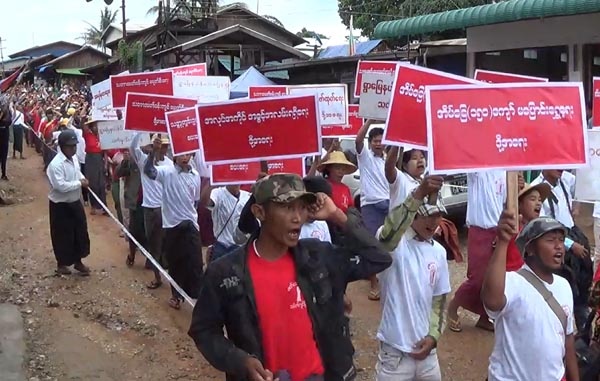 The mining sector in Burma continues to receive flak, with protestors taking to the streets in Wetthay and Phetshay villages in Thabeikkyin, Mandalay.
The mining sector in Burma continues to receive flak, with protestors taking to the streets in Wetthay and Phetshay villages in Thabeikkyin, Mandalay.
On 30 August, the villagers protested against the encroaching mining activities on village land and the displacement of more than 150 households. Aimed at gold mining companies such as Myanmar Golden Pwint, Shwe Pyi Thar and Htarwarra, along with other metal mining companies in the region, the protestors condemned the breaching of boundary lines by these companies and expanding mining activities onto legally recognized village land […]
• •Elusive Nationwide Ceasefire Agreement Continues to Distract from Substantial Peace Talks
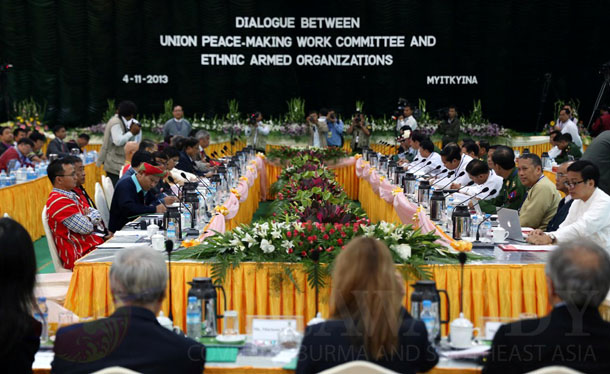 As talks over the signing of a nationwide ceasefire agreement (NCA) are delayed once again, thus pushing substantive dialogue further into the future, Burma’s decades long civil war rages on in Kachin and Shan States.
As talks over the signing of a nationwide ceasefire agreement (NCA) are delayed once again, thus pushing substantive dialogue further into the future, Burma’s decades long civil war rages on in Kachin and Shan States.
Talks over the signing of the NCA have now gone on for nearly 18 months and the situation on the ground has still not changed. The Burma Army continues to attack ethnic armed groups in areas where ceasefires have been signed, such as those of the Shan State Army South and Shan State Army North, as well as continuing offensives against the Kachin Independence Army and the Ta’ang National Liberation Front (TNLA) where there is no ceasefire. On Monday 18 August, a civilian in Namkan Township, Shan State was shot dead and another hospitalized after a clash between the TNLA and Burma Army. Human rights violations such as sexual violence, arbitrary arrest, torture and extrajudicial killing continue in these active conflict areas, while in areas where individual ceasefires are holding, the Burma Army is entrenching its power both militarily and economically through land confiscation and reinforcement of its positions.
The aim in this pursuit of the NCA is questionable as it distracts from the real issues at hand that prevent the ethnic people of Burma from enjoying genuine peace. Let us not forget that the Burma government has already signed ceasefire agreements with most ethnic armed groups. But has this stopped the attacks and human rights violations inflicted on local communities by armed forces? This question cannot be answered in the affirmative. Just ask the villagers who live in Murng Hsu, Shan State, whose homes came under artillery attack, and were forced to act as guides for the Burma Army in June of this year in a supposed ceasefire area. If all groups sign on to the NCA, the biggest question is how can they trust that the Burma Army will actually cease its attacks. There is scant evidence of this from current and previous ceasefires […]
• • •January – June 2014: Report on the Human Rights Situation on Burma
The Network for Human Right Documentation-Burma (ND-Burma) is an organization that documents and reports human rights violations taking place throughout Burma. We are a watch-dog for human rights violations and are continually monitoring the human rights situation in Burma.
This report covers the first period of 2014 and focuses on 103 documented cases of human rights violations in Burma from January-June 2014. There are many serious human rights violations addressed and highlighted in this report, including: torture, extra-judicial killing, illegal arrests and detention, arbitrary taxation, property crimes, forced labor, human trafficking, forced displacement and rape.
Even though President U Thein Sein promised to release all political prisoners by the end of 2013, there are still many political prisoners in Burma, including new detainees in 2014. Many human right defenders and activists have been arrested under the Unlawful Association Act of 1908, Section 5 (e) and 5 (j) of the Emergency Provisions Act, and Section (18) of the Right to Peaceful Assembly and Peaceful Procession Act. For example, U Win Cho and U Nay Myo Zin were arrested under Section (18) for protesting the confiscation of land in Kyauk Ta Dar Township, Yangon. Moreover, innocent Kachin IDPs were arrested under Section (17) of the Unlawful Association Act for suspected contact with ethnic armed groups. These actions reinforce the fact that the government in Burma is still willing to use oppressive and unjust laws against the Burmese people […]
• • •Political Opposition in Burma Must Ignore Distractions and Focus on Policy
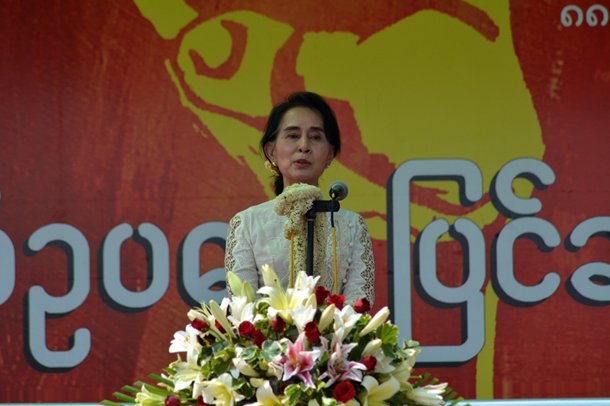 The main opposition party in Burma, the National League for Democracy (NLD), said last week that almost 5 million people signed the petition calling for constitutional reform that did the rounds from 27 May to 19 July. The petition pushed for the removal of the Burma Army’s veto on constitutional change that they have by virtue of Article 436 of the Burma Constitution. This campaign has been widely praised as a shrewd tactical move, because it would in theory unlock the door to amendments of any offending articles of the Burma Constitution that undermine democratic values and infringe upon the fundamental rights of the people. Most notably – though by no means exclusively, as the NLD and others are at pains to stress – amendment of Article 436 will in turn enable amendment of Article 59(f), which in practice bars Daw Aung San Suu Kyi running for President in the 2015 elections.
The main opposition party in Burma, the National League for Democracy (NLD), said last week that almost 5 million people signed the petition calling for constitutional reform that did the rounds from 27 May to 19 July. The petition pushed for the removal of the Burma Army’s veto on constitutional change that they have by virtue of Article 436 of the Burma Constitution. This campaign has been widely praised as a shrewd tactical move, because it would in theory unlock the door to amendments of any offending articles of the Burma Constitution that undermine democratic values and infringe upon the fundamental rights of the people. Most notably – though by no means exclusively, as the NLD and others are at pains to stress – amendment of Article 436 will in turn enable amendment of Article 59(f), which in practice bars Daw Aung San Suu Kyi running for President in the 2015 elections.
While such a public initiative is to be applauded, and the weight of support for the petition is to be welcomed, the political opposition in Burma must not allow itself to be distracted by such diversionary machinations on the part of the Burma Government and the ruling Union Solidarity and Development Party (USDP). The NLD is right that constitutional reform is essential to the establishment of genuine democracy in Burma. However, it is also time for the political opposition to test the limited democratic space that now exists in Burma, and time to start outlining a viable policy platform for government. The burden rests with the NLD and other democratic opposition parties to engineer a seismic cultural and political shift: away from politics traditionally centred on personalities and fear, and towards politics based on actual policies that will resolve people’s grievances and promote and protect their political, economic, social and cultural rights.
• • •
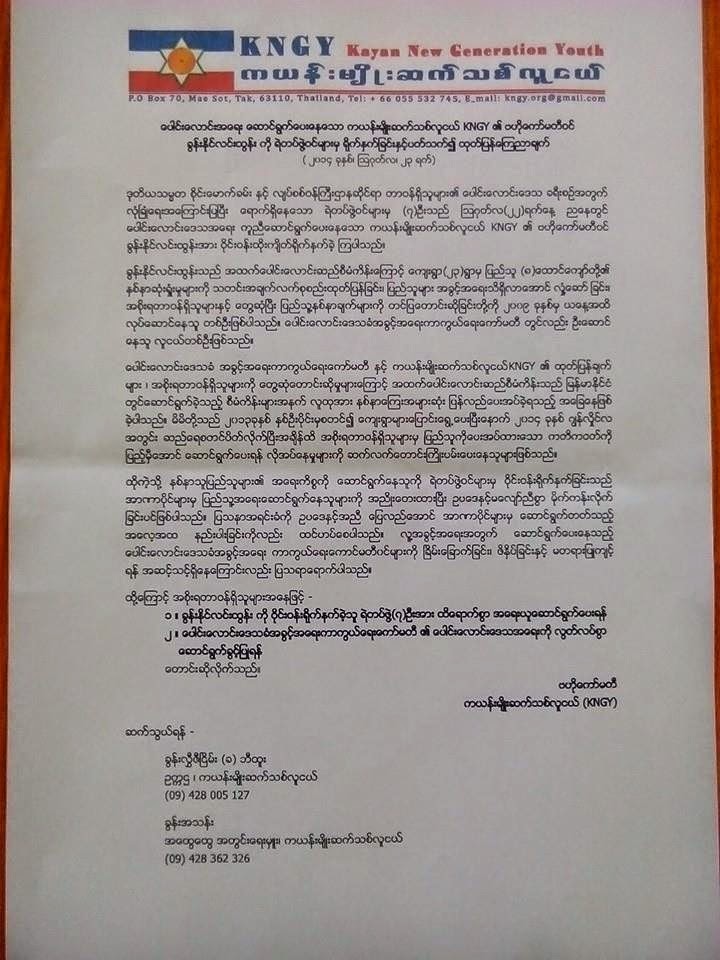
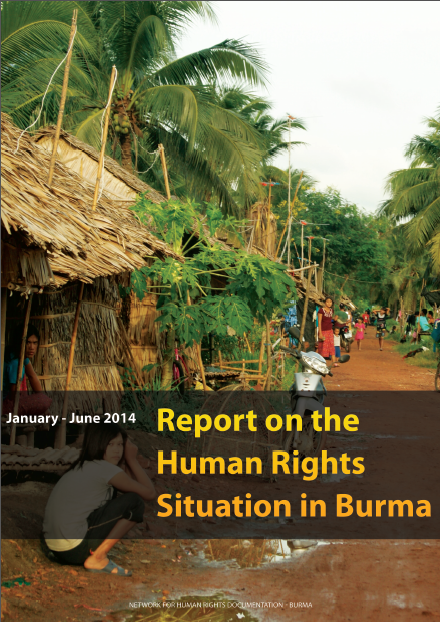








 All posts
All posts